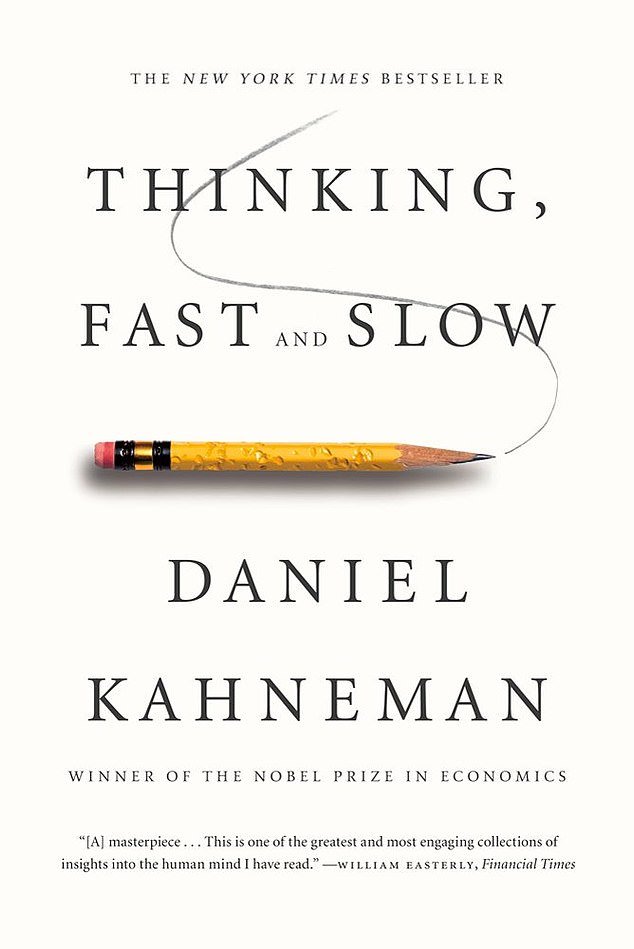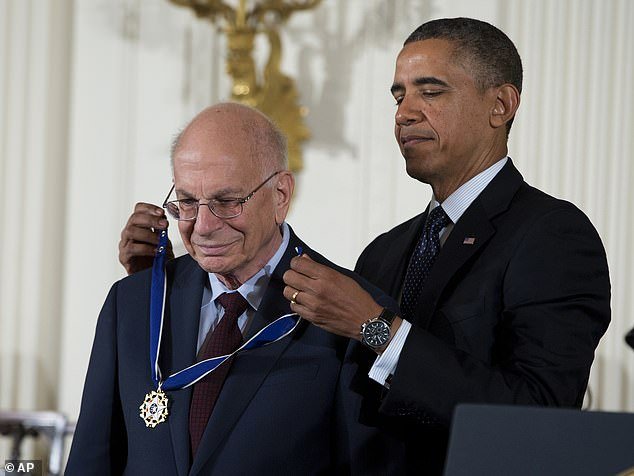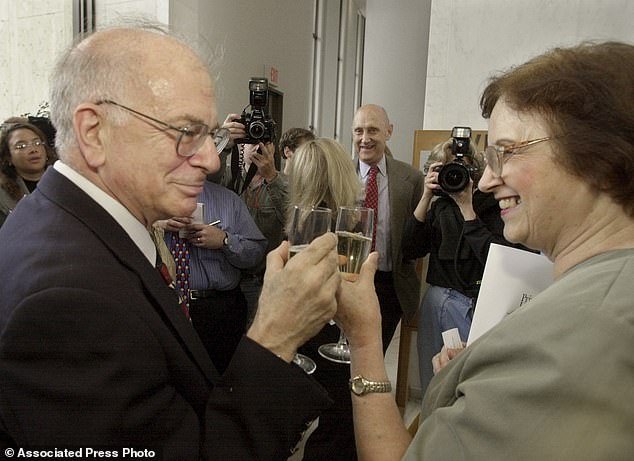Thinking, Fast and Slow author Daniel Kahneman dies aged 90: Psychologist won a Nobel Prize for his ground-breaking economics theory showing how people abandon logic and leap to conclusions
Psychologist and Nobel Prize winner Daniel Kahneman died on Wednesday at the age of 90.
The Israeli-born researcher became famous for his insights into how neurological biases influence decision-making.
Together with Amos Tversky, his long-time collaborator, the pair undermined the long-held belief in economics that people are “rational actors.”
The research, described in Kahneman’s 2011 bestseller “Thinking, Fast and Slow,” illustrated how much of our decision-making is shaped by deep-seated mental quirks that can distort thoughts in irrational yet predictable ways.
Daniel Kahneman, an Israeli-born researcher who became famous for his insights into how neurological biases influence decision-making, died Wednesday at the age of 90.

In 2011, Kahneman released a book, “Thinking, Fast and Slow,” which explained his Nobel Prize-winning theory of how people often do not behave like rational actors when making decisions.
Born in Tel Aviv, Kahneman served in the Israeli army in the 1950s, where he observed a test the army used to identify future leaders.
The test consistently produced candidates who performed particularly well in officer training, but that reality did not convince observers that their assessments, which seemed intuitively correct, were wrong.
“It was the first cognitive illusion I discovered,” he wrote, later coining the term “the illusion of validity.”
In “Thinking, Fast and Slow,” he explained that “many people are overconfident and tend to put too much faith in their intuition.
‘They apparently find cognitive effort at least mildly unpleasant and avoid it as much as possible.’
Kahneman’s death was confirmed by his partner Barbara Tversky, the widow of his former research partner Amos.
Barbara told the Associated Press that the family is not releasing Kahneman’s location or cause of death.
In addition to Barbara, his partner of four years, Kahneman is survived by two children from his first marriage, Michael Kahneman and Lenore Shoham; four stepchildren, Jessica, Daniel, Stephen and Deborah Treisman (children of his second wife Anne Treisman, whom he was married to until her death in 2018); and seven grandchildren.
In 2002, Kahneman received the Nobel Prize in Economics for his groundbreaking work – almost entirely done together with Tversky – in what is now called the field of modern behavioral economics.
He won the prize ‘for integrating insights from psychological research into economics, especially with regard to human judgment and decision-making under uncertainty.’

In 2013, eleven years after winning the Nobel Prize, Kahneman received the Presidential Medal of Freedom, the country’s highest civilian honor, from President Barack Obama.

In addition to Barbara, his partner of four years, Kahneman is survived by two children from his first marriage, Michael Kahneman and Lenore Shoham; four stepchildren, Jessica, Daniel, Stephen and Deborah Treisman (children of his second wife Anne Treisman (pictured), whom he was married to until her death in 2018); and seven grandchildren
In all likelihood, Tverksy would have been jointly awarded the Nobel Prize if he had not died in 1996 from metastatic melanoma. Nobel Prizes are not awarded posthumously.
In his Nobel Prize autobiography, Kahneman described the experience of working with Tversky as “magical.”
“Amos was often described by people who knew him as the smartest person they knew. He was also very funny… and the result was that we could work hard for hours in constant cheerfulness.
“Amos and I shared the wonder that together we had a goose that could lay golden eggs—a collective mind that was better than our separate minds,” he wrote.
In 2013, Kahneman received the Presidential Medal of Freedom, the country’s highest civilian honor, from President Barack Obama.
In a 2015 interview with The Guardian, Kahneman said: ‘I worked very hard, but I didn’t expect to become a famous psychologist.
‘I’m very good at enjoying myself, and I’ve had a great life.’
